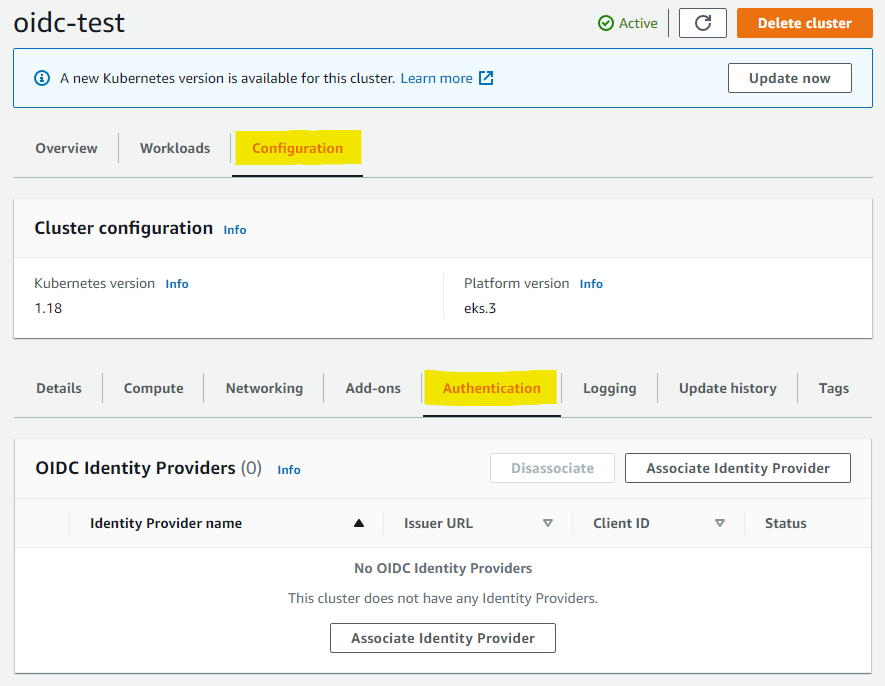Containers
Category: Compute
Graceful shutdowns with ECS
February 2023: Parts of this blog are no longer accurate. Following enhancements to the ELB integration for ECS services, tasks running on Fargate Spot will be deregistered from a target group if it receives a spot termination notice before a SIGTERM is issued to the Task. Introduction Amazon Elastic Container Service (Amazon ECS) gives customers […]
Amazon ECS-optimized Amazon Linux AMI End-of-Life
Update June 25, 2025 – The ECS-optimized Amazon Linux AMI (also called Amazon Linux 1) will reach its end of life on September 15, 2025. We encourage customers to upgrade their applications to use Amazon Linux 2023, which includes long term support through 2028. Since its launch in 2015, the Amazon ECS-optimized Amazon Linux AMI has […]
NEW – Using Amazon ECS Exec to access your containers on AWS Fargate and Amazon EC2
Today, we are announcing the ability for all Amazon ECS users including developers and operators to “exec” into a container running inside a task deployed on either Amazon EC2 or AWS Fargate. This new functionality, dubbed ECS Exec, allows users to either run an interactive shell or a single command against a container. This was one of […]
Autoscaling Amazon ECS services based on custom CloudWatch and Prometheus metrics
Introduction Horizontal scalability is a critical aspect of cloud native applications. Microservices deployed to Amazon ECS leverage the Application Auto Scaling service to automatically scale based on observed metrics data. Amazon ECS measures service utilization based on CPU and memory resources consumed by the tasks that belong to a service and publishes CloudWatch metrics, namely, […]
Deploy a Spring Boot application on a multi-architecture Amazon EKS cluster
This blog is no longer up to date as it was written for Amazon EKS Kubernetes version 1.21 and uses a version of Amazon Aurora which are no longer supported. Refer to the Amazon EKS Kubernetes versions and Amazon Aurora versions AWS documentation for supported versions. Introduction Why might customers consider deploying applications on a […]
How to build container images with Amazon EKS on Fargate
Note: The Kaniko project has been archived and is not actively maintained. This post was contributed by Re Alvarez Parmar and Olly Pomeroy Containers help developers simplify the way they package, distribute, and deploy their applications. Developers package their code into a container image that includes the application code, libraries, and any other dependencies. This […]
Amazon ECR’s credential helper now supports Amazon ECR Public
amazon-ecr-credential-helper is a credential helper for the Docker daemon that makes it easier to use Amazon Elastic Container Registry (ECR). Once configured, ECR credential helper automatically uses the same credentials as the AWS CLI and the AWS SDKs to first retrieve an ECR authentication token for secure access to repositories, then lets the Docker daemon […]
Theoretical cost optimization by Amazon ECS launch type: Fargate vs EC2
This post was contributed by Julia Beck, Thomas Le Moullec, Kevin Polossat, and Sam Sanders Customers often ask about best practices when using Amazon Elastic Container Service (Amazon ECS), in particular around the Well-Architected Framework pillar of Cost Optimization. Within this, choosing between the two different launch types, EC2 and Fargate, may be one of […]
Using mTLS with SPIFFE/SPIRE in AWS App Mesh on Amazon EKS
NOTICE: October 04, 2024 – This post no longer reflects the best guidance for configuring a service mesh with Amazon EKS and its examples no longer work as shown. Please refer to newer content on Amazon VPC Lattice. ——– By Efe Selcuk and Apurup Chevuru and Michael Hausenblas You know that here at AWS we […]
Introducing OIDC identity provider authentication for Amazon EKS
Today, we introduced user authentication for Amazon EKS clusters from an OpenID Connect (OIDC) Identity Provider (IDP). This feature allows customers to integrate an OIDC identity provider with a new or existing Amazon EKS cluster running Kubernetes version 1.16 or later. The OIDC IDP can be used as an alternative to, or along with AWS […]








